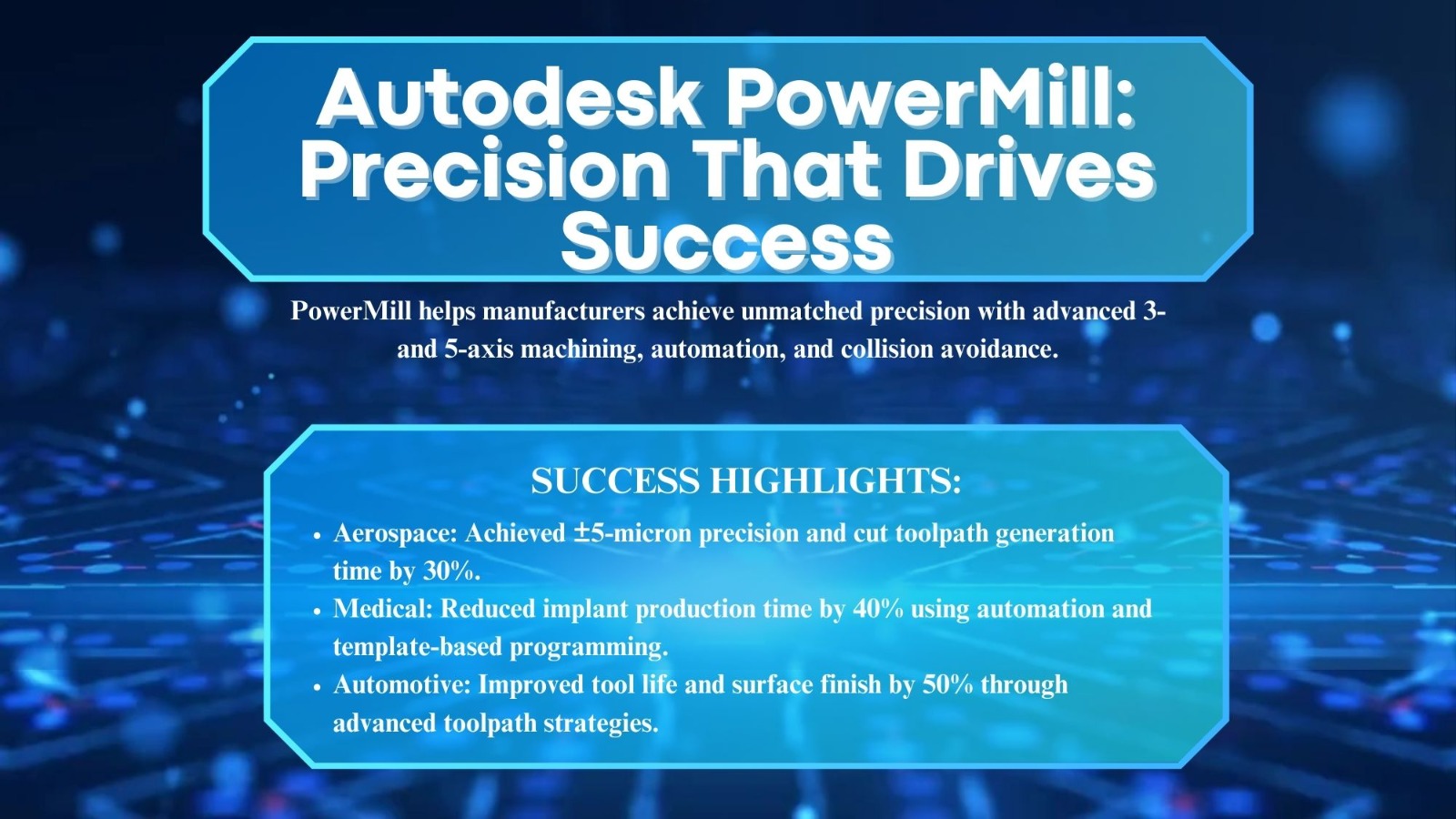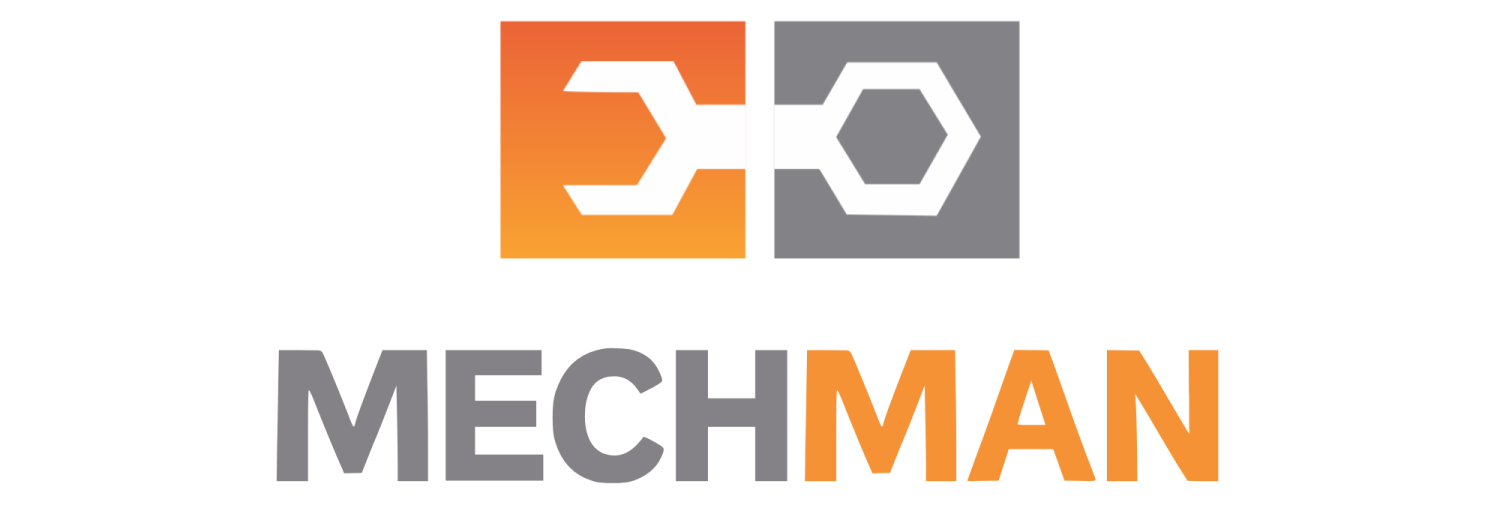Advanced computer-aided manufacturing (CAM) software has become essential for achieving flawless outcomes as businesses strive for increasingly precise production accuracy. One of the best options is Autodesk PowerMill, which enables producers to handle intricate machining with unmatched precision. This article examines real-world success stories to demonstrate how PowerMill fosters accuracy across various industries.

Why Autodesk PowerMill?
High-speed machining is where Autodesk PowerMill excels, producing toolpaths designed to ensure excellent surface finishes. Due to its adaptability to 3-axis, 5-axis, and complex components, it is a preferred option for sectors such as aerospace, automotive, and medical. Regardless of the project’s intricacy, PowerMill’s sophisticated automation and collision avoidance capabilities enable manufacturers to achieve tight tolerances and optimize their operations.
Case Study Highlights: Success Stories from the Field
A. Aerospace Manufacturer Achieves Tight Tolerances
Turbine blade machining with ±5 micron tolerances presented difficulties for a major aerospace supplier. They reduced vibrations and improved cutting angles by putting PowerMill’s 5-axis strategies, such as swarf and morph toolpaths, into practice. The outcome? Parts were continuously produced to exacting ±5-micron precision, and toolpath generation time decreased by 30%, resulting in increased customer satisfaction and reduced waste.
B. Medical Device Firm Cuts Production Time by 40%
Under strict time constraints, a medical device company was required to develop biocompatible implants with intricate geometries. Programming complex forms was made easier by PowerMill’s surface machining techniques and unique templates. Setup times were shortened by 40% due to automated toolpath creation and rest machining, which also increased repeatability and guaranteed adherence to medical standards.
C. Automotive Supplier Boosts Tool Life and Finish Quality
A supplier of car parts had trouble with the demanding delivery timelines and surface finish quality of mold components. Precise toolpath modifications were made possible with PowerMill’s Dynamic Machine Control (DMC) and collision-avoiding technologies, which reduced chatter and tool wear. The result was a considerable decrease in expensive rework, an increase in tool life, and a 50% improvement in surface quality.
Features of Autodesk PowerMill That Promote Precision
PowerMill’s extensive feature set accounts for its accuracy:
- Toolpath Simulation & Verification: Sophisticated simulation protects tools and workpieces by identifying possible collisions.
- Custom Macros & Automation: Automate repetitive operations and minimize human error using predefined templates.
- Dynamic Machine Control (DMC): Ideal cutting conditions are guaranteed by real-time toolpath modifications.
- Rest Machining: Maximizes tool life, reduces waste, and effectively targets leftover material.
These features enable producers to maximize speed and resource use while maintaining accuracy.
Testimonials from the Industry
CAM programmers at an aerospace company have attributed the prevention of costly errors to PowerMill’s simulation capabilities, with one case reportedly saving $50,000 in mold damage. Engineers in the medical manufacturing industry have observed notable time savings, with automation features cutting programming time by up to 50%. This frees up teams to focus more on guaranteeing the accuracy and quality of the final product. Customers frequently compliment PowerMill on its accuracy, adaptability, and ability to manage challenging projects that rival software finds difficult.
The Function of PowerMill in Intelligent Manufacturing
By integrating with IoT-ready configurations, digital twins, and simulation tools, PowerMill supports Industry 4.0. It enhances process optimization and predictive maintenance by providing accurate toolpath data to digital workflows. In intelligent, networked production settings, PowerMill enables firms to maintain their competitiveness by facilitating seamless communication between design, machining, and quality control.
Final Thoughts: The Precision Advantage
These success stories, an automotive supplier improving surface quality, a medical manufacturer reducing production time by 40%, and an aerospace company achieving ±5-micron tolerances, demonstrate Autodesk PowerMill’s revolutionary impact. Manufacturers gain a competitive edge through accuracy, efficiency, and dependability by leveraging their sophisticated toolpaths, automation, and simulation capabilities.
Enroll in Autodesk PowerMill Training or Certification Programs to Master Its Capabilities:
The moment to take action is now, regardless of your goals: future-proof your workshop, optimize complicated toolpaths, or reduce programming time. Mechman Solution, your reliable Autodesk partner, offers a free demo.
Discover how PowerMill can address your specific manufacturing needs.
Start your path to intelligent, effective, and scalable CNC machining. One toolpath at a time, let’s construct the manufacturing of the future.
👉 To schedule a free demo or training consultation, get in touch with us right now.
📩 mechmansolution@gmail.com | 📞 +91 99137 89065 | 🌐 www.mechmansolution.com
Also Read: Autodesk Fusion 360 vs PowerMill: Which CAM Software Is Best For Complex Machining?
